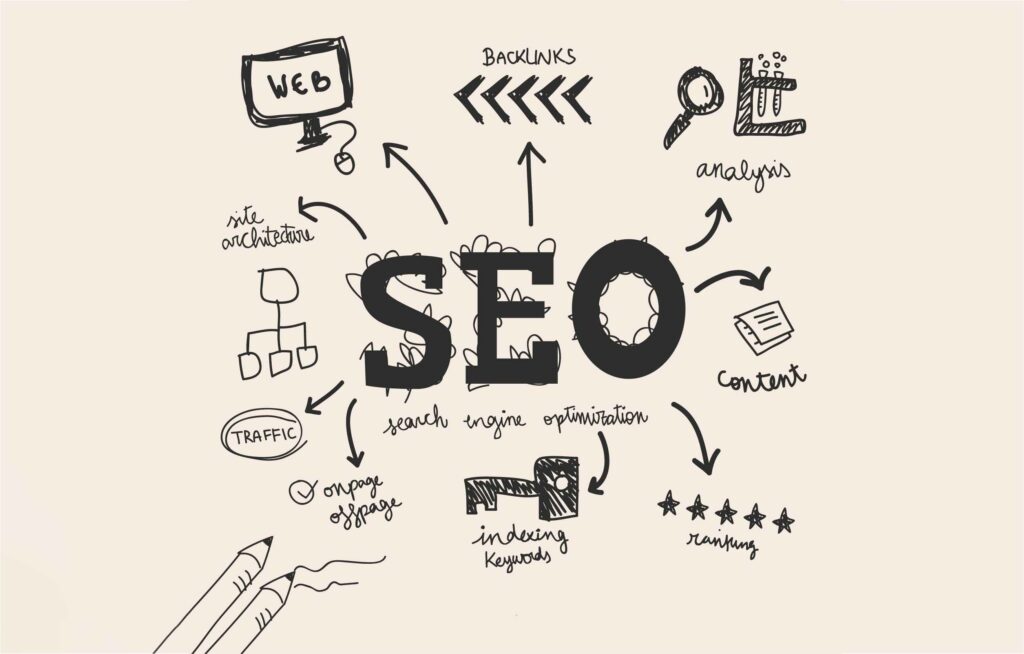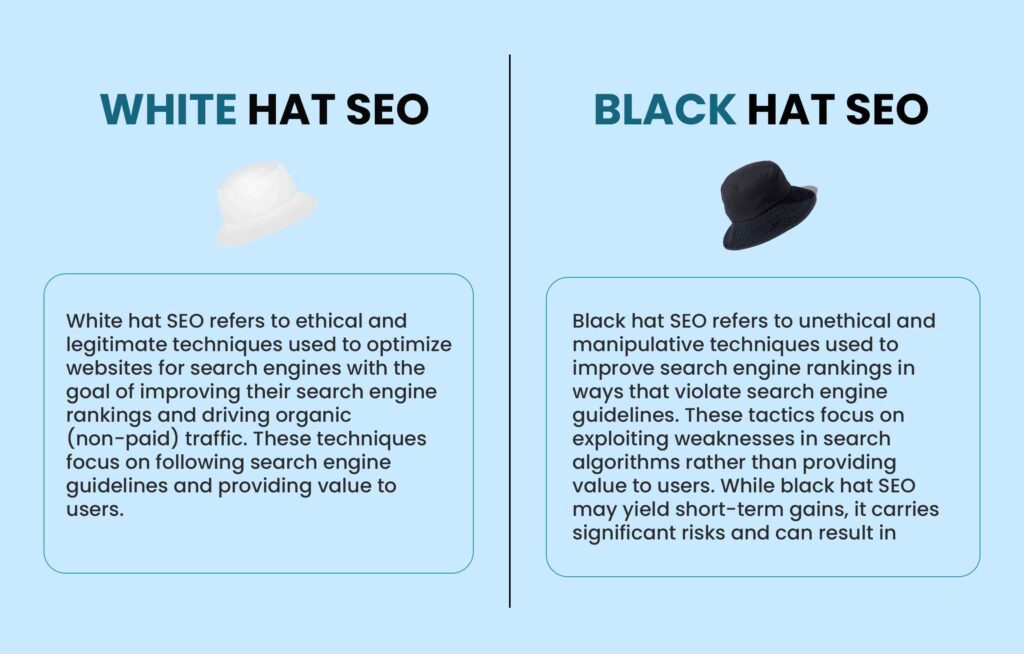What is SEO? Importance of SEO in 2023

In the dynamic world of online marketing, Search Engine Optimization (SEO) plays a pivotal role in driving organic traffic and improving the visibility of websites. SEO involves optimizing web pages and content to rank higher in search engine results pages (SERPs), making it easier for users to discover your website. In 2023, the importance of SEO has only increased, as businesses strive to stand out in the digital landscape and attract their target audience. Let’s delve into the concept of SEO, its significance, and the different types of SEO techniques employed.
What is SEO?
SEO encompasses a range of strategies and practices aimed at improving a website’s visibility in search engine rankings. By aligning with search engine algorithms, SEO helps websites rank higher, leading to increased organic traffic and potential customers. SEO involves on-page optimization (content and HTML optimization) and off-page optimization (building backlinks and social signals) to ensure search engines understand and index website content effectively.
The Significance of Search Engine Optimization in 2023
- Boosting Website Visibility: With millions of websites competing for attention, SEO is essential to improve your website’s visibility. Higher search engine rankings make your website more likely to be discovered by users, increasing the chances of attracting targeted traffic.
- Driving Organic Traffic: Organic traffic, generated through unpaid search results, is highly valuable. SEO techniques optimize your website’s content, structure, and keywords, increasing its visibility in search results and driving organic traffic. Organic traffic tends to have higher conversion rates and provides a sustainable long-term traffic source.
- Establishing Credibility and Trust: A strong SEO strategy helps build credibility and trust with both search engines and users. Higher search engine rankings indicate that your website is reliable and authoritative. This perception enhances your brand reputation and encourages users to choose your website over competitors.
- Enhancing User Experience: User experience (UX) is a vital factor in SEO. Search engines prioritize websites that offer a positive user experience. SEO involves optimizing website speed, navigation, mobile responsiveness, and overall usability, resulting in a seamless browsing experience for visitors.
- Staying Ahead of Competitors: SEO provides a competitive edge by outranking competitors in search results. By implementing effective SEO strategies, you can attract more traffic, secure a larger market share, and establish your brand as a leader in your industry.

White Hat SEO
White Hat SEO refers to ethical and legitimate SEO practices that abide by search engine guidelines. It involves creating high-quality content, optimizing website structure, using relevant keywords, and building authoritative backlinks. White Hat SEO focuses on long-term sustainable growth and user-centric strategies.
Black Hat SEO
Black Hat SEO employs unethical and manipulative techniques to achieve quick but short-term results. These practices violate search engine guidelines and can result in penalties or even the banning of a website. Examples of Black Hat SEO techniques include keyword stuffing, hidden text, cloaking, and link schemes. It is crucial to avoid Black Hat SEO as it can severely harm your website’s reputation and visibility in the long run.
Different Types of SEO
- On-Page SEO: On-page SEO involves optimizing individual web pages to rank higher and attract relevant traffic. It includes optimizing content, meta tags, headers, URLs, and internal linking.
- Off-Page SEO: Off-page SEO focuses on improving a website’s authority and reputation by building high-quality backlinks and social signals. It involves outreach, guest blogging, influencer marketing, and social media engagement.
- Technical SEO: Technical SEO deals with optimizing the technical aspects of a website to improve its search engine visibility. It includes website speed optimization, mobile responsiveness, crawlability, and XML sitemaps.
- Local SEO: Local SEO aims to optimize a website for local search results. It involves targeting specific geographic locations, optimizing Google My Business listings, and acquiring local citations.
- Voice Search SEO: With the rise of voice assistants, optimizing content for voice search has become essential. Voice Search SEO focuses on long-tail keywords, featured snippets, and natural language optimization.
In conclusion, SEO continues to be crucial for businesses in 2023. It boosts website visibility, drives organic traffic, establishes credibility, enhances user experience, and helps stay ahead of competitors. By embracing White Hat SEO techniques and understanding the different types of SEO, businesses can unlock the power of search engines and achieve sustainable growth in the digital landscape.